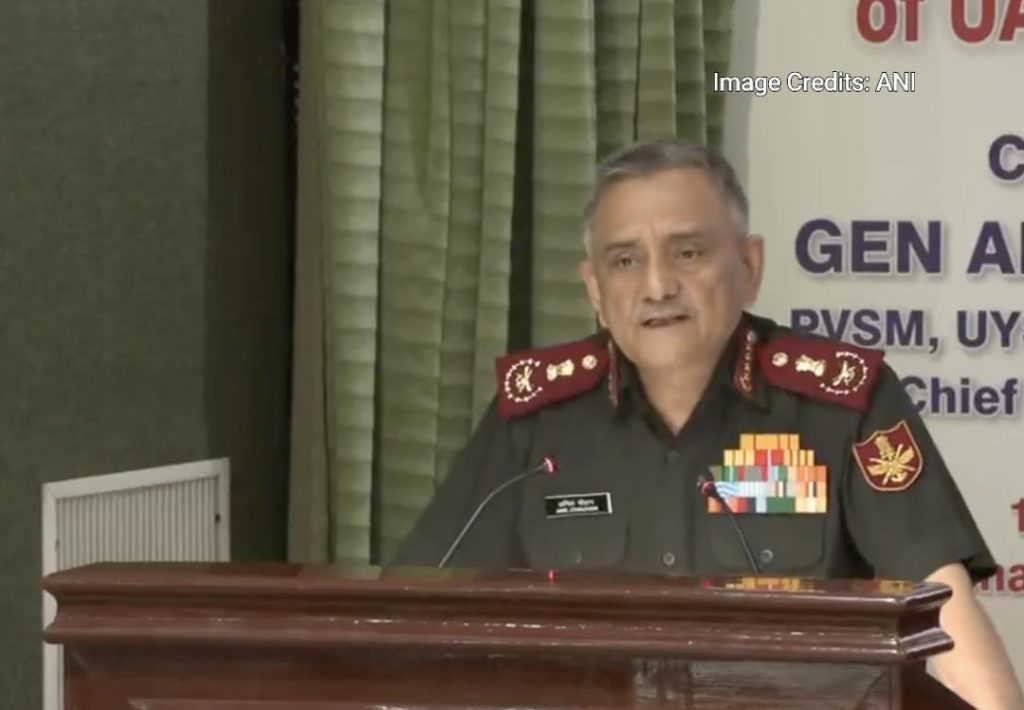
Pak used unarmed drones & loitering munitions: CDS Anil Chauhan
The recent conflict between India and Pakistan has been making headlines globally, and the latest revelation by Chief of Defence Staff (CDS) General Anil Chauhan has shed more light on the nature of Pakistan’s military strategy during the conflict. According to General Chauhan, Pakistan resorted to using unarmed drones and loitering munitions, which, despite their potential, failed to inflict any significant damage on the Indian military or civil infrastructure.
In an address, General Chauhan revealed that Pakistan’s attempts to employ these unconventional weapons were met with success, but not in the way they had hoped. The CDS explained that most of the drones and loitering munitions were neutralized through a combination of kinetic and non-kinetic means, rendering them ineffective.
What are Loitering Munitions?
Before we dive deeper into General Chauhan’s statement, it’s essential to understand what loitering munitions are. Loitering munitions are a type of weapon that is designed to remain airborne for an extended period, scanning the target area for potential targets. These munitions are equipped with advanced sensors and guidance systems, allowing them to detect and engage targets with high precision.
Loitering munitions are often used in situations where a high degree of accuracy is required, and traditional artillery or aerial assets may not be suitable. They are also useful in situations where the target is moving or is difficult to track, as they can remain airborne for an extended period, waiting for the target to come into range.
Pakistan’s Use of Loitering Munitions
According to General Chauhan, Pakistan used loitering munitions during the recent conflict, but their attempts were unsuccessful. The CDS explained that the Indian military was well-prepared to counter these threats, and most of the loitering munitions were neutralized through kinetic and non-kinetic means.
The use of loitering munitions by Pakistan highlights the country’s desire to employ unconventional weapons in its military strategy. However, as General Chauhan’s statement suggests, this approach may not be as effective as Pakistan had hoped.
India’s Response to Loitering Munitions
General Chauhan’s statement also touched on India’s response to the loitering munitions employed by Pakistan. The CDS revealed that the Indian military was well-prepared to counter this threat, and most of the loitering munitions were neutralized through kinetic and non-kinetic means.
The use of kinetic and non-kinetic means to neutralize the loitering munitions suggests that India employed a combination of military and non-military assets to counter the threat. This approach is likely to have been successful, given the CDS’s statement that most of the loitering munitions were neutralized.
Some of the loitering munitions were even recovered in almost intact conditions, according to General Chauhan. This suggests that India’s military was able to capture and recover some of the loitering munitions, which can provide valuable insights into Pakistan’s military strategy and capabilities.
Conclusion
In conclusion, General Anil Chauhan’s statement highlights the importance of being prepared to counter unconventional threats in modern warfare. The use of loitering munitions and unarmed drones by Pakistan during the recent conflict is a testament to the country’s desire to employ innovative tactics and strategies.
However, as General Chauhan’s statement suggests, these attempts were unsuccessful, and most of the loitering munitions were neutralized through kinetic and non-kinetic means. India’s response to the loitering munitions employed by Pakistan demonstrates the country’s ability to adapt and counter unconventional threats.
As the world becomes increasingly complex and interconnected, it’s essential for nations to be prepared to counter a wide range of threats. General Chauhan’s statement serves as a reminder of the importance of being prepared to adapt to new and emerging threats, and the need for nations to work together to ensure global security.
News Source:
https://x.com/ANI/status/1945332191258345508






